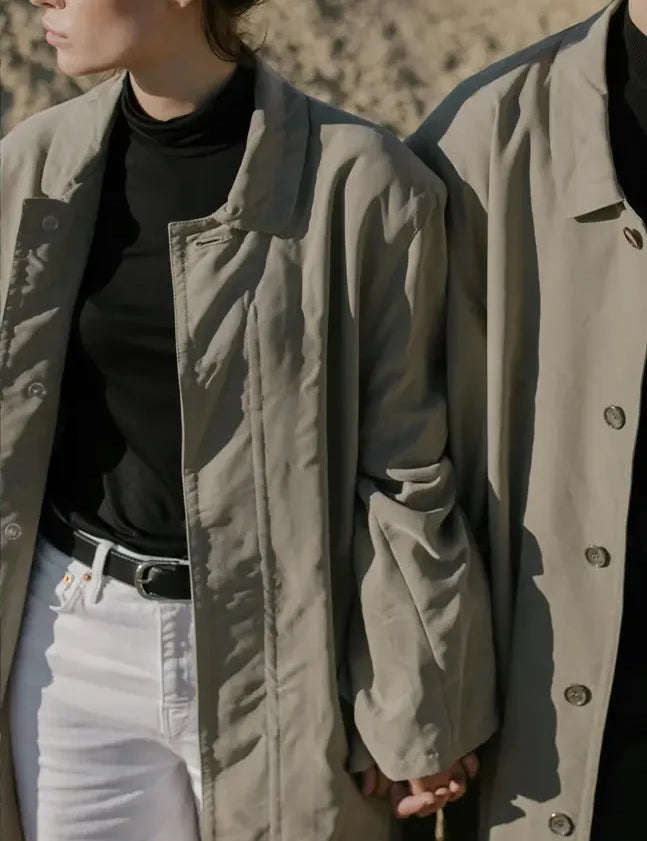In a world saturated by fleeting trends and mass-produced garments, many of us are searching for a more meaningful, sustainable way to dress. Slow fashion is the thoughtful response to the environmental and ethical challenges posed by fast fashion. In this article, we’ll explore the key principles of slow fashion, why it matters for both consumers and the planet, and how Ecomarket embodies these ideals through our commitment to high-quality, ethically made, and environmentally friendly clothing.
What Is Fast Fashion?
Fast fashion refers to inexpensive, rapidly produced clothing collections that mimic the latest catwalk or celebrity trends. Brands often release new lines multiple times a month, encouraging consumers to keep purchasing. While fast fashion might seem convenient and wallet-friendly, it has significant downsides:
- Environmental Impact: Overproduction, synthetic fabrics, and toxic dyes result in water pollution, excessive waste, and high carbon emissions.
- Questionable Labor Practices: In order to keep costs low, some fast-fashion brands often depend on outsourced factories where fair wages and safe working conditions may be compromised.
- Planned Obsolescence: Garments are designed to wear out quickly or go out of style, fueling a cycle of overconsumption and waste.
Enter Slow Fashion
Slow fashion counters the above issues by embracing quality over quantity, transparency in the supply chain, and respect for workers and the environment. Here’s what makes slow fashion different:
- Thoughtful Design: Each piece is designed with longevity in mind, often featuring timeless silhouettes and durable fabrics.
- Ethical Production: Slow fashion brands focus on fair wages, safe working conditions, and transparent supply chains.
- Sustainability: The use of eco-friendly materials (like organic cotton, TENCEL™, or recycled fabrics) and practices (such as low-impact dyes and minimal water usage) reduces harm to the planet.
Why Slow Fashion Matters
1. Protects the Planet
By using sustainable materials and reducing overproduction, slow fashion helps lower carbon emissions and preserve natural resources. This is crucial in Europe and worldwide, where fashion-related pollution affects water sources, soil health, and biodiversity.
2. Ensures Fair Labor
Slow fashion brands often collaborate with suppliers who value fair wages, safe working conditions, and ethical labor practices. This means that people behind your clothing are treated with dignity and respect.
3. Builds a Mindful Wardrobe
A slow fashion closet is filled with versatile, high-quality items that stand the test of time. Investing in such pieces can lead to a deeper connection with your personal style while simultaneously reducing waste.
4. Encourages Conscious Consumerism
Slow fashion prompts us to think about how our purchases affect the environment, workers, and communities. Rather than chasing short-lived trends, slow fashion encourages you to buy less, choose well, and make it last.
Ecomarket’s Vision
At Ecomarket, we believe in a holistic approach to fashion—one that respects people, animals, and the planet. We partner with vegan, ethically sourced, and sustainable brands from across Europe, including Italy, Portugal, Spain, France, Germany, Belgium, Austria, and the Netherlands. Our mission is to:
- Curate collections of quality clothing that align with the slow fashion philosophy.
- Offer transparency into the sourcing and manufacturing processes of our partner brands.
- Uphold vegan principles by ensuring no animal-derived materials are used in our products.
Through careful sourcing and a dedication to slow fashion values, we’re reshaping how Europeans—and the world—view modern style.
Tips for Building a Slow Fashion Wardrobe
-
Assess What You Have
Start by taking inventory of your existing wardrobe. Identify key pieces you love and wear regularly. This helps you recognize gaps and avoid impulse buys. -
Invest in Timeless Pieces
Look for classic cuts, neutral colors, and durable fabrics that withstand changing trends and seasons. Brands at Ecomarket prioritize designs that can easily transition from casual to more formal occasions. -
Choose Sustainable Materials
Opt for organic cotton, linen, hemp, TENCEL™ or other eco-friendly fabrics. These require fewer resources and cause less pollution during production. -
Shop Quality Over Quantity
Instead of buying multiple low-cost items, invest in fewer, higher-quality garments that last longer. This is the essence of slow fashion. -
Support Ethical Brands
Research or rely on trusted marketplaces—like Ecomarket—to ensure the products you purchase come from companies that adhere to ethical labor practices and eco-friendly standards. -
Extend the Life of Your Clothes
Proper care—such as washing in cold water, air-drying, and learning basic mending techniques—prolongs your garments’ lifespan, reducing the need for frequent replacements.
Slow fashion isn’t just a trend—it’s a mindful, responsible approach that benefits the planet, supports fair labor conditions, and helps you cultivate a curated, long-lasting wardrobe. At Ecomarket, we’re proud to champion these values by offering ethically sourced, sustainable, and vegan clothing for European consumers seeking meaningful style choices. By embracing slow fashion, you’re taking a stand for both personal well-being and global sustainability—one purchase at a time.
Explore our curated collections at Ecomarket.com and discover how effortless it can be to dress with purpose, style, and respect for the planet.




